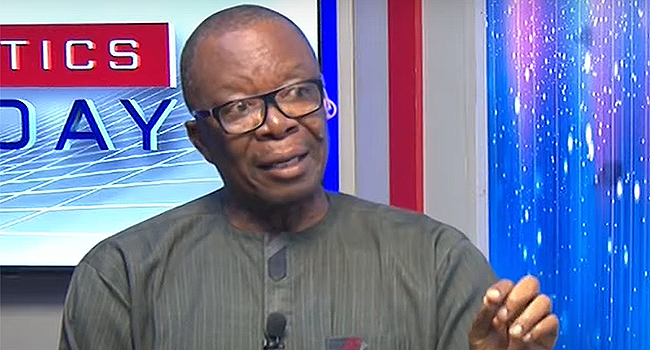The Academic Staff Union of Universities (ASUU) has cautioned the Federal Government against replacing the Tertiary Education Trust Fund (TETFund) with the Nigerian Education Loan Fund (NELFUND), warning that such a move would cripple public universities and undermine tertiary education in Nigeria.
ASUU President, Professor Emmanuel Osodeke, made this statement during an interview on Channels Television’s Sunrise Daily on Thursday.
He described TETFund as the backbone of public university funding for the past three decades and argued that its suffocation would lead to the collapse of the sector.
“The only source of funding is from TETFund, so when you destroy it, you have destroyed public universities,” Osodeke said.
The ASUU president accused certain members of the ruling class of orchestrating a plot to destroy public universities, claiming it was part of a deliberate strategy to disenfranchise the children of the poor.
“They want to destroy public universities and ensure that the children of the poor remain slaves”, he alleged.
Osodeke also criticized the tax bills introduced by President Bola Tinubu’s administration, saying they were drafted without input from key stakeholders in the education sector, including ASUU, Vice Chancellors, and Pro Chancellors.
“TETFund is a product of ASUU. You can’t make the tax laws without meeting with ASUU for inputs before proposing it before the National Assembly.
READ ALSO: Senate Declares Privatisation Of Power Sector In Nigeria A Total Failure
“The Vice Chancellors were not consulted, Pro Chancellors were not consulted. The people sat down somewhere and said over the next five years let’s scrap it without consulting those who initiated this bill that has transformed Nigerian public universities. That’s not how to work in a system. That’s not how to run a country that is democratic,” he said.
He further explained that TETFund, funded by consolidated revenue from company income tax, has been instrumental in building 90% of the physical infrastructure in Nigerian universities, polytechnics, and colleges of education.
He argued that merging TETFund with other agencies like NASENI and NITDA, as proposed by the tax bill, would reduce its impact and ultimately scrap it by 2030.
Osodeke urged the government to explore alternative sources of funding for NELFUND, such as allocating 1% or 2% of Value Added Tax (VAT), instead of draining resources from TETFund.
He said, “Let that Act that was initiated in 1993 that has transformed all Nigerian universities, allow it to stay. If you want to drive NELFUND, go and look for ways to fund it. Don’t take from the one that is in existence to fund it.
“Take 1% or 2% of VAT to fund NELFUND. Don’t take from Peter to pay Peter. Go and look for ways to fund NELFUND.”
He added, “When you go around all Nigerian universities, polytechnics and colleges of education today, 90% of the physical structures you have there are products of this struggle for TETFUND
“But this tax bill is saying that by the year 2030, it should be scrapped and merged with NASENI and NITDA and then reduced to 2%.”
The ASUU president emphasized that dismantling TETFund to fund NELFUND would be a step backward and a disservice to the progress made in Nigerian tertiary education
Meanwhile, Prof. Emmanuel Osodeke also faulted the bill, saying there are many things included in the bill that were not supposed to be there.
Osodeke said the increment of VAT would compound the woes of many Nigerians, who are still battling the negative effects of fuel subsidy removal and floatation of Naira if it is increased in 2025 and subsequent years as proposed.
“I think what we’re supposed to look at in this bill is how it is going to affect the ordinary Nigerians. I’ve heard people from various regions, we support this, we disagree, and what have you. Meanwhile, they have not bothered to look at the bill. I will just mention one, VAT.
“VAT is a tax on consumers, which is Nigerians. So, if you increase the VAT today, it’s not affecting producers, it’s going to affect those who are going to consume because what the producer will do is drop it on the cost of sale,” he said.


